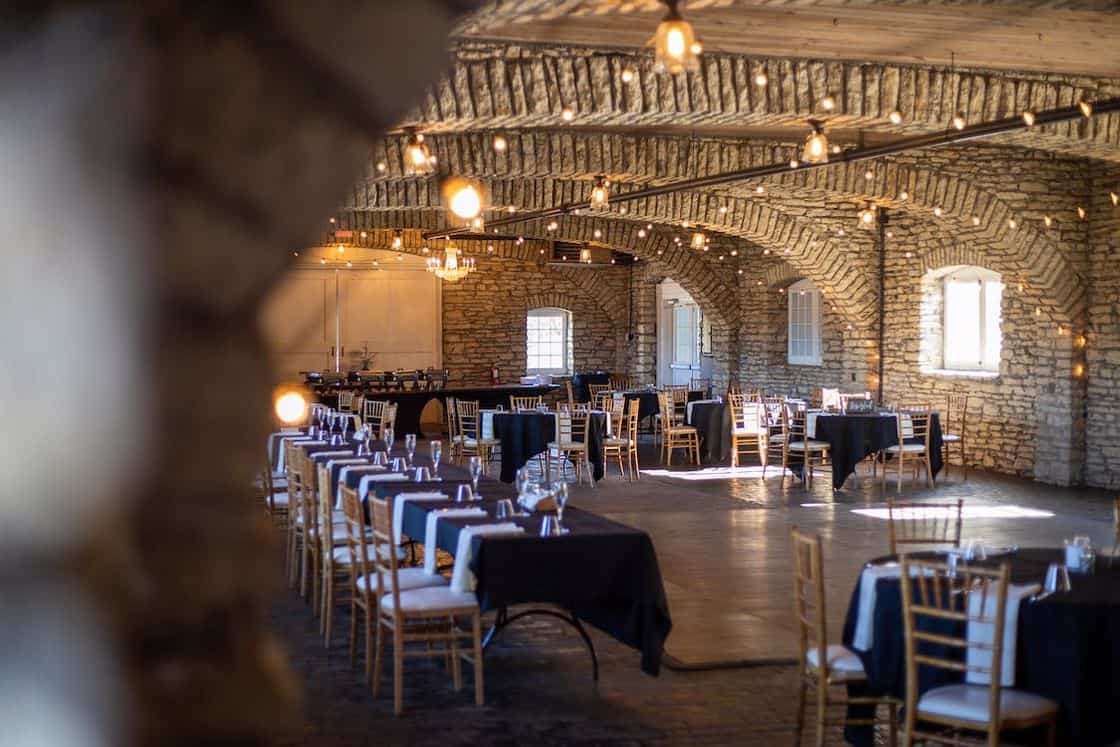Understanding Event Production: Why It Is Very Important for Effective Events
Event production plays a vital function fit effective gatherings. It entails careful planning, coordination, and implementation to ensure every detail lines up with the event's vision. This process not only improves attendee experiences however additionally helps with significant links amongst participants. Recognizing the ins and outs of event production can greatly influence the total end result. What are the key elements that add to a successful event, and how can they be properly taken care of?
The Function of Event Production in Producing Memorable Experiences
Several variables add to the success of an event, event production plays a pivotal duty in crafting memorable experiences. This diverse procedure encompasses different aspects, consisting of preparation, logistics, and execution. Reliable event production assurances that every detail straightens with the total vision, producing a seamless flow that captivates participants. By working with timelines, managing sources, and overseeing technological aspects, event manufacturers develop a structure for impactful experiences.Moreover, they curate settings that reverberate with the target audience, enhancing interaction and psychological connection. From picking suitable places to incorporating ingenious technology, the selections made throughout production considerably influence exactly how guests perceive and remember the event. By focusing on top quality and attention to information, event production transforms ordinary events right into remarkable minutes, leaving enduring impressions. Inevitably, the proficient orchestration of these elements specifies the significance of an occasion, showcasing the significance of specialist event production in accomplishing exceptional results.
Secret Parts of Effective Event Production
Efficient event production depends upon a number of essential components that ensure success. Planning and control establish a solid structure, while technical setup requirements deal with logistical demands. Additionally, applying audience involvement techniques enhances the general experience, making the event memorable.
Planning and Control
Preparation and coordination act as the backbone of effective event production, making certain that every information aligns seamlessly to create an unforgettable experience. Effective preparation entails developing a clear vision and purposes, while control entails the meticulous company of logistics, schedules, and resources. A distinct timeline is important, directing all stakeholders via crucial turning points and jobs. Interaction plays an essential duty, cultivating partnership among group members, vendors, and place team. Regular meetings and updates help to attend to obstacles without delay, guaranteeing that everyone continues to be straightened with the event goals. Inevitably, a structured approach to preparation and control not only improves efficiency however also significantly contributes to the total success and enjoyment of the event for attendees and organizers alike.
Technical Setup Requirements
An effective event depends greatly on its technological arrangement demands, which encompass important components such as audio-visual tools, lights, staging, and connection. Audio-visual devices includes microphones, speakers, and projectors, making sure that discussions and efficiencies are delivered plainly. Correct illumination improves the ambiance and highlights crucial locations, while organizing provides the essential platform for audio speakers and entertainers. Connection, including Wi-Fi and electrical gain access to, is vital for smooth interaction and technology integration. Each element has to be meticulously prepared and implemented, customized to the event's specific needs. Inadequate technological arrangements can bring about disturbances, negatively impacting the overall experience for participants, emphasizing the significance of extensive prep work and interest to information in event production.
Audience Involvement Methods

The Value of Planning and Sychronisation
Preparation and control are vital to the success of any type of event production. Effective timeline management, source allocation techniques, and group interaction dynamics play essential functions in ensuring that all components integrated flawlessly. Without a structured approach to these aspects, events risk dealing with delays, budget plan overruns, and miscommunication amongst staff member.
Reliable Timeline Management


While successful event production usually hinges on creativity and implementation, efficient timeline administration continues to be a crucial component that can not be overlooked. A well-structured timeline acts as the foundation of any type of event, ensuring that each stage is executed in a timely manner. It permits for the control of various jobs, from location arrangement to visitor arrivals, while protecting against prospective bottlenecks. By clearly laying out target dates and obligations, event coordinators can keep emphasis and adjust to unforeseen challenges. Additionally, a diligently crafted timeline promotes communication amongst index employee, promoting liability and cooperation. Eventually, effective timeline administration not only enhances operational performance but likewise adds greatly to the general success and smooth implementation of the event, leaving participants with an unforgettable experience.
Resource Allocation Methods
Reliable source allotment techniques are crucial for the successful execution of any kind of event. Proper preparation enables event organizers to identify and disperse sources, such as funds, personnel, and products, in a way that takes full advantage of efficiency. By assessing the certain demands of each facet of the event, organizers can prioritize tasks and allot resources as necessary. image source Sychronisation amongst different divisions makes sure that all elements, from providing to audiovisual demands, are adequately sustained. This tactical technique not only lessens waste however likewise improves the general experience for attendees. In addition, expecting potential obstacles and having backup plans in position permits smoother procedures. Eventually, effective resource allocation adds substantially to attaining event objectives and ensuring an unforgettable event.
Team Communication Characteristics
Exactly how can smooth communication amongst staff member change the event production procedure? Reliable communication is important for coordinating jobs, sharing updates, and resolving difficulties in real-time. When employee involve in open discussion, they can swiftly recognize potential problems and establish remedies collaboratively, minimizing hold-ups and misconceptions. This dynamic fosters a natural environment where every person understands their functions and obligations, resulting in an extra integrated effort. Additionally, routine check-ins and responses loopholes enhance accountability and guarantee positioning with the event's purposes. By prioritizing interaction techniques, groups can improve operations, reinforce morale, and eventually elevate the total high quality of the event. Effective gatherings hinge on the capability to communicate properly, making it a necessary component of event production.
Enhancing Attendee Interaction With Imaginative Style
Innovative style plays a critical duty in improving guest engagement at events, as it fosters an immersive environment that astounds participants' interest. By integrating cutting-edge visuals, interactive elements, and thematic design, event organizers can create unforgettable experiences that resonate with guests. Thoughtful design designs advertise activity and expedition, encouraging visitors to connect with screens and each other.Incorporating modern technology, such as increased truth or live ballot, further enriches the experience, enabling real-time comments and interaction. Additionally, sensory components like lights, noise, and fragrance can evoke feelings and produce a much more interesting atmosphere.The use of narration with design more information aids convey the event's purpose and message, making it much more relatable for attendees. Inevitably, imaginative design not only boosts engagement but likewise grows connections amongst participants, leaving a long lasting impression that expands beyond the event itself. This strategic method to style is essential for effective gatherings.
Handling Logistics for a Smooth Execution
While the exhilaration of an occasion can draw guests in, handling logistics is important to safeguard a seamless execution. This involves diligently working with various components, from location option and format to wedding catering and transport. Reliable logistics administration guarantees that all parts straighten, enabling a smooth circulation from enrollment to the conclusion of the event.Additionally, a clear communication strategy among all stakeholders is imperative. This consists of personnel, suppliers, and volunteers, who have to be notified of their functions and duties. Preparing for potential challenges, such as devices failing or unexpected climate condition, can additionally improve the event's success.Creating an in-depth timeline aids keep the group on course and enables prompt changes. Ultimately, well-managed logistics not only promote a delightful experience for guests however likewise mirror the professionalism and integrity of the organizers, adding to the total success of the gathering.

The Influence of Modern Technology on Event Production
What function does modern technology play in forming modern event production? Innovation has actually ended up being a keystone of efficient event production, enhancing both planning and implementation procedures. From sophisticated registration systems to interactive apps, technology improves guest monitoring and improves interaction. Digital event systems allow organizers to get to broader target markets, breaking geographical obstacles and helping with hybrid celebrations that combine in-person and on the internet experiences.Additionally, audiovisual innovations, such as high-definition screens and audio systems, elevate the top quality of presentations and performances, ensuring a memorable experience for participants - event production charlotte. Social media site integration enables real-time responses and communication, promoting area engagement in the past, during, and after the event. Data analytics tools help organizers in keeping track of participant behavior and preferences, enabling tailored experiences that reverberate with varied audiences. In general, the assimilation of innovation in event production not only boosts functional performance but also enhances attendee experiences, ultimately contributing to the success of the event
Evaluating Success: Measuring the Results of Your Event
Success in event production depends upon efficient analysis, which entails measuring a variety of outcomes to evaluate the general effect of an event. To attain this, organizers can use both qualitative and quantitative metrics. Measurable steps may include participation figures, ticket sales, and revenue created, while qualitative assessments might include attendee contentment studies and feedback forms.Additionally, analyzing social media sites engagement and media protection can provide insights right into the event's reach and brand effect. Contrasting these metrics versus predefined objectives helps establish if the objectives were met.Furthermore, post-event debriefs with the preparation group can discover lessons found out and locations for enhancement. By systematically assessing these end results, event producers can improve future celebrations, guaranteeing continual development and success. Eventually, an extensive assessment not only highlights success yet additionally informs strategic decisions for subsequent events, fostering a culture of excellence in event production.
Regularly Asked Questions
What Qualifications Should an Event Producer Have?
Event producers ought to possess solid organizational abilities, creative thinking, and effective interaction capabilities. A history in job management, budgeting, and arrangement is essential. Pertinent certifications and experience in varied event kinds better improve their qualifications.
How Can I Minimize Event Production Expenses Efficiently?
To properly decrease event production costs, one can streamline vendor selection, work out contracts, utilize in-house sources, prioritize important components, implement innovation for performance, and discover sponsorship opportunities to counter costs without endangering top quality.
What Are the Common Obstacles in Event Production?
Usual obstacles in event production consist of budget restraints, logistical control, vendor management, time limitations, participant involvement, technical difficulties, and unanticipated scenarios - event production charlotte. Each factor can significantly impact the overall success and smooth execution of the event
Just how Do I Choose the Right Location for My Event?
Choosing the ideal place involves thinking about elements such as place, capability, facilities, and spending plan. In addition, reviewing accessibility and atmosphere ensures the picked space lines up with the event's objectives and improves the total guest experience.
What Is the Common Timeline for Planning an Occasion?
The regular timeline for intending an event varies, but typically includes stages such as concept development, location choice, supplier sychronisation, promotion, and final prep work, usually spanning numerous months to ensure an effective execution.